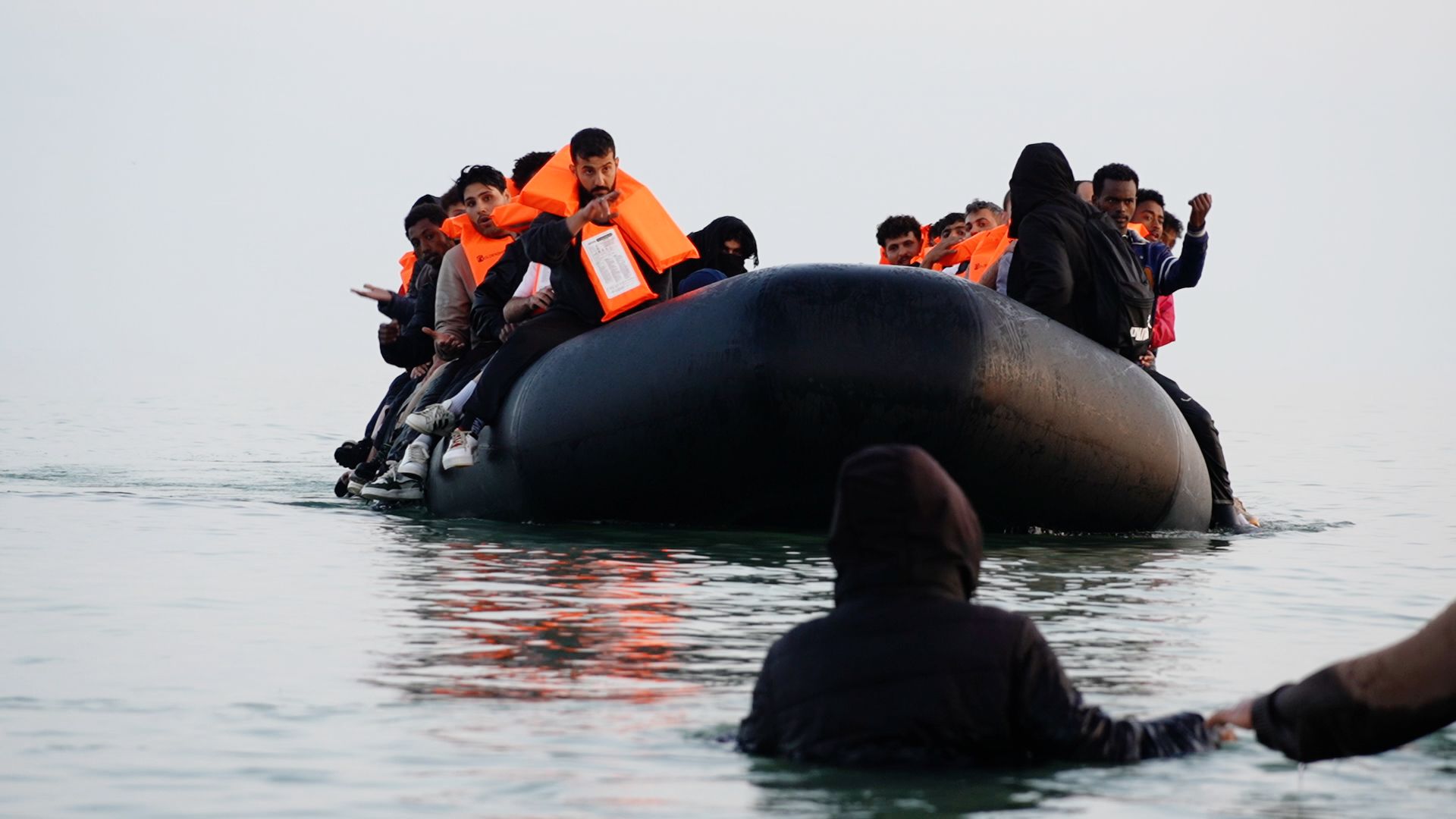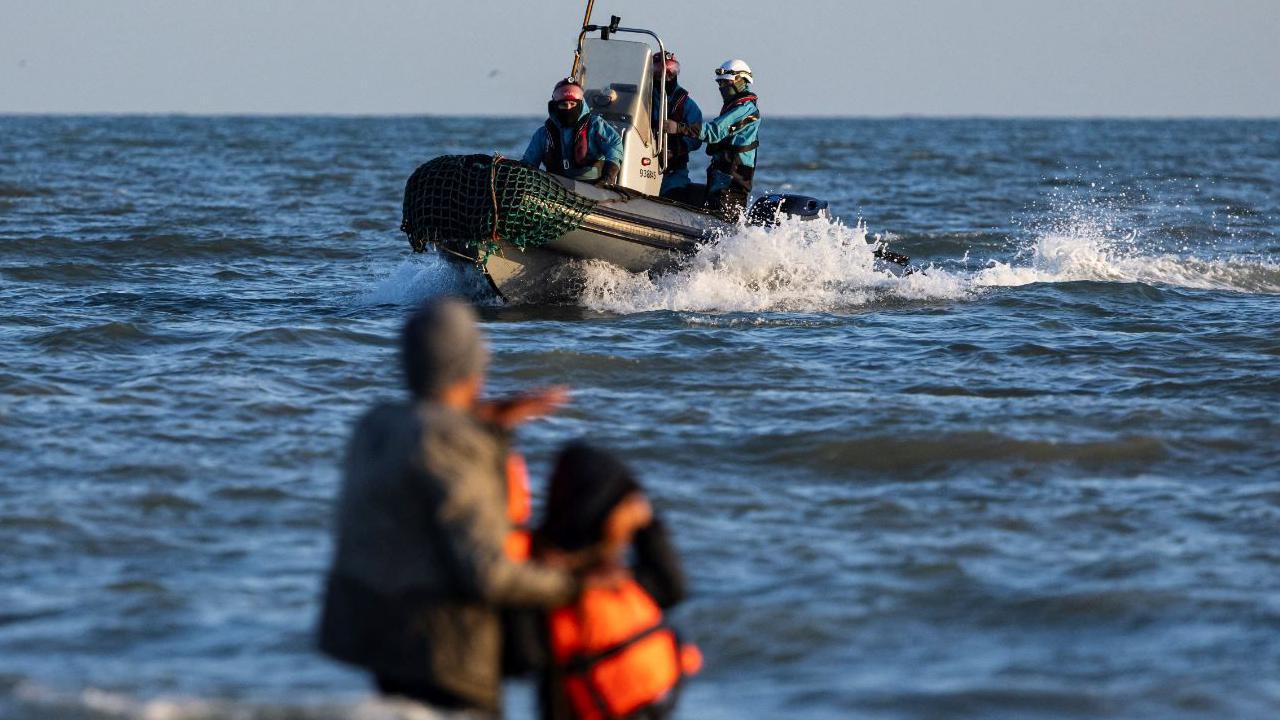Introduction
The Channel migrant crisis is mounting as smugglers adopt a new “taxi boat” method—launching inflatable vessels from remote points and picking up migrants submerged in waist-deep water. French police can no longer rely on stopping departures from the beach alone, forcing a rethink of enforcement tactics.
What Are ‘Taxi Boats’?
Instead of gathering on shore, migrants now wade into shallow waters at less-monitored beaches like Wissant and Audresselles. There, inflatable boats—piloted by smugglers out of sight of officers—circumnavigate until passengers can clamber aboard. BBC footage shows orderly boarding under police gaze but without intervention.
Why It’s So Much Harder for French Police

Under current law, French officers cannot step into the sea to stop boats already afloat—unless someone’s life is in imminent danger. Colonel Olivier Alary described how “even one centimetre of water” halts enforcement. Police fear legal repercussions if an interception leads to drowning.
Surge in Channel Crossings & Upcoming Rule Change
- Over 14,800 migrants have crossed so far this year—up 45% year‑on‑year. [Reuters]
- France plans to introduce a “maritime doctrine” in July, allowing interceptions up to 300 m offshore. [Financial Times]
France–UK Coordination & Political Pressure
UK PM Keir Starmer and President Macron agreed at the G7 summit to strengthen cooperation on migration. France aims to share costs and responsibilities—potentially expanding beach patrol units funded by a previously agreed £480 million deal. [The Times]
Home Secretary Yvette Cooper is pushing for legal changes to force French intervention at sea. [The Times]

New Tactics From Smuggling Gangs
Smugglers are agile. They now inflate boats in hidden dunes or warehouses, tow them across, and conduct runs across the 120 km coast—abandoning driver vehicles on beaches and striking before police attention grows.
These “taxi boats” allow quick boarding—avoiding overcrowded launches that led to drownings in past incidents where as many as five migrants suffocated on a single boat.
Human Cost & Public Response
Centuries-old communities are being thrust into conflict. Soma, a Somali migrant, reports being hit and tear-gassed by police while trying to board. Women and children struggle to climb aboard, often left behind :contentReference[oaicite:9]{index=9}.
Local voices, like Audresselles’s mayor Stéphane Pinto, argue that Britain’s pull and lack of safe asylum routes drive the crisis: “England is attractive… unless we tackle it, we will be spectators to what happens.”

Conclusion: Will New Rules Work?
The Channel migrant crisis is evolving. “Taxi boats” bypass beach enforcement, pressuring France to revise rules and expand resources. But will these updates curb crossings—or push migrants to riskier, remote launches? With over 16,000 already arrived in 2025, the stage is set for intensified UK-France diplomatic action.
For continuous updates on migration and global events, visit our Latest European Migration News.